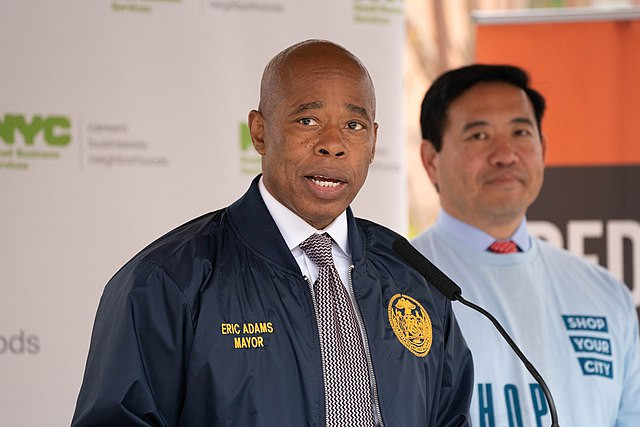The indictment of New York City Mayor Eric Adams on federal criminal charges has not only sent shockwaves through the city but also raised significant concerns about the broader political implications. The first sitting mayor in New York City history to be federally indicted, Adams faces an uncertain future, with many questioning his ability to lead while under legal scrutiny. The charges, which remain sealed, stem from a long-running investigation into alleged corruption within his administration. The indictment has left Adams fighting for his political survival while others within his party call for his resignation.
Adams has made it clear he has no intention of stepping down, insisting on his innocence and pledging to fight the charges. In a video statement, he said, "If I am charged, I know I am innocent, and I will request an immediate trial so the New Yorkers can hear the truth." Adams framed the indictment as politically motivated, pointing to his vocal opposition to federal immigration policies as a possible reason for the charges. He continued, "For months, leaks and rumors have been aimed at me in an effort to undermine my credibility."
While Adams remains defiant, the political fallout has been swift and severe. Key figures in New York's Democratic Party have called for his resignation, citing the need for stable leadership during a time of immense challenges for the city. City Comptroller Brad Lander was one of the first to issue a statement, saying, "The most appropriate path forward is for him to step down so that New York City can get the full focus its leadership demands." Lander, who has been critical of Adams in the past, emphasized that the mayor's legal fight would distract from the critical work needed to govern the city effectively.
Former City Comptroller Scott Stringer echoed Lander's sentiment, calling the situation a "broken down trainwreck of a municipal government." He added, "The mayor needs to resign for the good of the city. His legal fight is not our fight." Stringer, along with several other Democrats, pointed to the ongoing investigations and high-level resignations within Adams' administration as signs that the mayor's focus has already been compromised.
State Senator Zellnor Myrie was also direct in his criticism, expressing disappointment that Adams, a figure who had inspired many Black New Yorkers, now faces serious legal trouble. "We live in the greatest city in the world - and the Mayor must be fully focused on delivering for the millions who call it home," Myrie said. "A mayor under the weight of a serious indictment can no longer do that - and today I am calling on him to resign."
In addition to these high-profile resignations, the indictment raises questions about Adams' role in the upcoming 2024 presidential election. As one of New York's 28 electors in the Electoral College, Adams would have played a key role in casting the state's votes. However, with his legal troubles mounting, there is speculation that he may be replaced as an elector. Some have even raised concerns about the possibility of Adams becoming a "faithless elector" and not casting his vote for Vice President Kamala Harris, though there is no direct evidence to suggest this will happen.
Gavin Bena, a Democratic elector from Missouri, downplayed these concerns, stating that if Adams is replaced, it "won't cost [Harris] any votes." Under New York law, electors are required to cast their vote for the presidential candidate who wins the state's popular vote, and any deviation from this would result in the elector's immediate resignation.
Governor Kathy Hochul, who has the authority to remove Adams from office, has so far remained cautious in her response to the indictment. In a statement, Hochul's press secretary, Avi Small, said, "Governor Hochul is aware of these concerning news reports and is monitoring the situation. It would be premature to comment further until the matter is confirmed by law enforcement." While Hochul has not yet taken action, the pressure on Adams is mounting from all sides, as both his opponents and allies weigh in on the political consequences of the indictment.
As the legal process moves forward, Adams faces a difficult road ahead. The calls for his resignation will likely intensify as more details about the charges are revealed. In the meantime, New Yorkers are left with a mayor who must navigate both the court of law and the court of public opinion, all while trying to govern a city facing significant challenges. Whether Adams can continue to lead effectively - or if his legal battle will ultimately force him out of office - remains to be seen.






